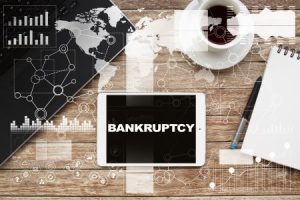What’s Better, Chapter 13 Or Chapter 7?

Now more than ever, distressed debtors need a fresh start through bankruptcy. Over the last several years, courts and bureaucrats have whittled away at some key consumer protection laws. So, bankruptcy might be the only way to stop creditor harassment, protect your assets, and otherwise take control of your own financial affairs.
The coronavirus pandemic put additional financial stress on families who were barely making ends meet to begin with. The pandemic also prompted lawmakers to add some provisions to the Bankruptcy Code. As a result, only an experienced Chicago bankruptcy lawyer can evaluate your case and give you solid advice as to whether Chapter 13 or Chapter 7 is best for your family.
Chapter 13 Bankruptcy
If you have past due secured debts, like delinquent mortgage payments, Chapter 13 is probably your best option.
The protected repayment plan is at the center of a Chapter 13 bankruptcy. When borrowers fall behind on secured debt payments, banks often offer “payment plans” which last at most a few months. But Chapter 13 gives these debtors up to 60 months to gradually erase such indebtedness.
Furthermore, bank-offered payment plans are non-guaranteed. Lenders can revoke them at any time, and in most cases, they may take adverse actions, such as repossession and foreclosure proceedings, while the debtor is in repayment.
Chapter 13 is different. The Automatic Stay usually remains in effect for the entire protected repayment period. Section 362 of the Bankruptcy Code prohibits things like:
- Foreclosure,
- Creditor harassment,
- Eviction,
- Repossession,
- Wage garnishment, and
- Creditor lawsuits.
During the protected repayment period, debtors make monthly payments which take care of past-due mortgage payments, certain priority unsecured debt arrears, and some other allowed claims. If the plan payment becomes burdensome, a Chicago bankruptcy lawyer gives you options, such as a motion to modify the plan payment amount, a hardship discharge, or a conversion to Chapter 7.
Chapter 7 Bankruptcy
Many people struggle with unsecured debts, such as credit cards and medical bills. Chapter 7 is tailor-made for these families.
In as little as nine months, Chapter 7 discharges (eliminates) such debts. The aforementioned priority unsecured debts, mostly back taxes and student loans, are only dischargeable in some situations.
The Automatic Stay stops adverse actions, just like in a Chapter 13. The same property exemptions also apply in both Chapter 7 and Chapter 13. These exemptions normally include:
- House,
- Government benefits,
- Car,
- Retirement account, and
- Personal property.
In addition to the written exemptions, some unwritten exemptions, such as the best interests of creditors rule, also apply. The trustee (person who oversees the case for the judge) may only seize nonexempt property if its liquidation would financially benefit the creditors.
So, contrary to popular myth, most people who file Chapter 7 keep most of their assets. Only luxury items, like vacation homes and yachts, are usually at risk.
Also contrary to popular myth, most people qualify for Chapter 7. Your household income must simply be lower than the average income for that household size in that state. Truthfully, if your income is significantly higher, you probably do not need to file Chapter 7. Other, better options are usually available.
Reach Out to Tenacious Cook County Lawyers
Distressed debtors have multiple legal options. For a free consultation with an experienced bankruptcy attorney in Chicago, contact the Bentz Holguin Law Firm, LLC. We routinely handle matters in Illinois and Indiana.
Resource:
law.cornell.edu/supct/pdf/05-996P.ZS


